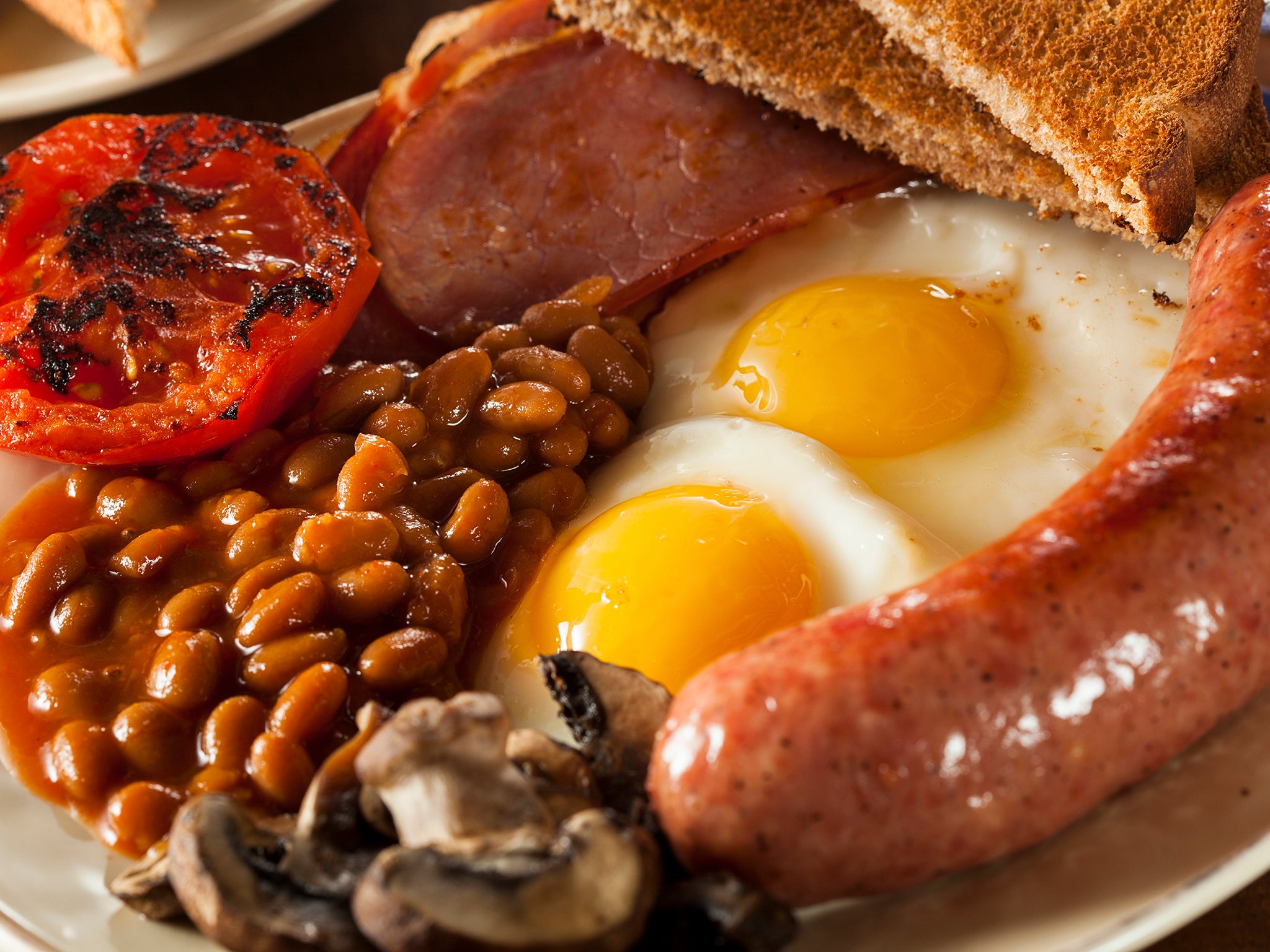One in four young people no longer have bacon with their British fry up, survey shows
Survey suggests 18 to 24-year-olds are becoming increasingly health-conscious

A quarter of young people say they have removed bacon from their morning fry up, suggesting an increasing concern over the impact cured meat product on their health.
A survey of 2,000 Britions found more than 25 per cent of people aged between 18 and 24 no longer include bacon in their full English breakfast.
It follows a report by the World Health Organisation released in November highlighting the link between processed meats and an increased risk of cancer.
The Agriculture and Horticulture Development board reported a 17 per cent drop in bacon sales followed the WHO report, but said sales appeared to be recovering and are now only four per cent lower since November.
The Glotech Repairs survey also revealed that young people are opting for scrambled eggs rather than fried, which suggests there may also be concerns over fat intake influencing young people's dietry choices.
Cereal is still a favourite choice among Britons, with almost 60 per cent choosing it for breakfast.
While cutting down on bacon is likely to be good for health and may reduce your risk of cancer, experts say it does not need to be cut from the diet altogether.
Anna Daniels, at the British Dietetic Association, said: "With the growing emergence of social media, teens and adolescents are becoming increasingly aware of their eating habits.
“There is a worry that this can be taken to the extreme as a little bacon in a full English occasionally as part of a balanced diet would be perfectly harmless.”
Join our commenting forum
Join thought-provoking conversations, follow other Independent readers and see their replies
Comments